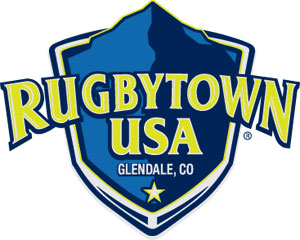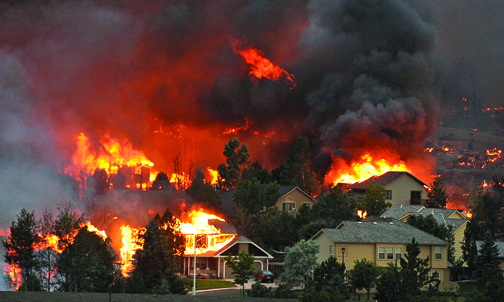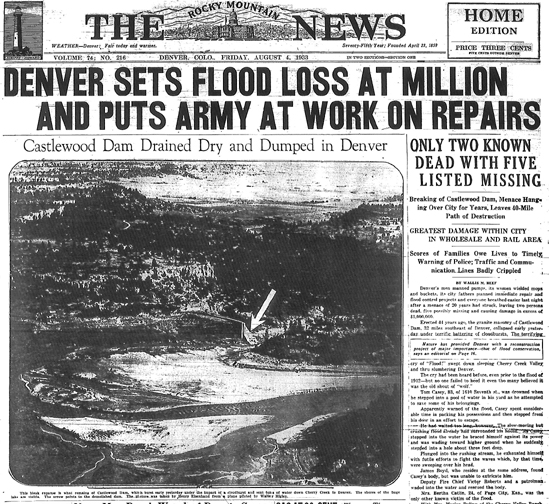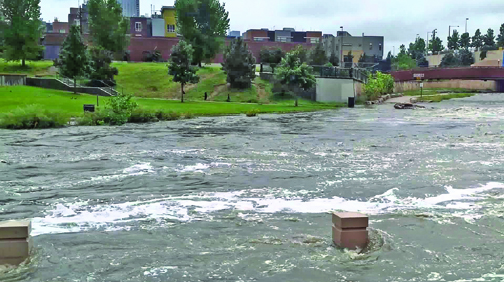
Find Fun, Flowers And Flurries
February is when we envision going skiing and curling up in front of the fireplace with hot chocolate. This month receives less snowfall than other winter months but the temperatures are similar . . . freezing! If there were ever a time for the coziness of quilts and the warmth of romance, it would be February. We give flowers to warm up our love.
Valentine month requires making love with chapped lips, cracked knuckles and at least five layers of clothes. February’s maximum temperature is just 41-51° Fahrenheit.
Here are our warm-hearted thawed-out choices for shopping, dining and entertainment to get your heart pulsating and turn those flutters into true coupledom:
3 “Piece of My Heart” made Janis Joplin one of the biggest female rock stars of her era. Take the one you love to the musical celebrating the singer at the Paramount Feb. 3, 7:30 p.m. Information: 303-623-0106.
3 Edgy-historic films at the Jewish Film Festival in the elegant Wolf Theatre are sure to make your heart flutter, Feb. 7-19. Information: 303-399-2660.
3 Take your sweetie to the over-the-top Chinese New Year’s Valentine fling in the McNichols Building Feb. 9, 6 p.m. Information: 303-817-8400.
3 Enjoy a dreamy dinner with music and dancing at the Hearts & Hope Gala Feb. 10 in the Four Seasons Hotel, 5 p.m. Information: 303-424-0313.
3 Here’s a loving thought: Learn how you can help — treat your loved ones to assisted living and memory care at Eastern Star Masonic Retirement Campus, devoted to their comfort, safety, enrichment and contentment. Information: 303-800-7023.
3 Switch things up this Valentine’s at Aurora’s steakhouse Salvage Restaurant offering a three course Prix Fix dinner Feb. 10-14. Add a Romance Package with roses, chocolates and a champagne toast. Information: 303-751-2112.
3 Join a Valley Valentine tradition enjoying the sweet sounds of Dakota Blonde in Swallow Hill’s Daniels Hall Feb. 11, 7 p.m. Information: 303-777-1003.
3 Allow your love to blossom viewing colorful orchid blooms at Denver Botanic Gardens’ Orchid Showcase Feb. 19. Information: 720-865-3500.
3 Focus your attention, craving, euphoria and energy on your Valentine at this year’s Beaux Arts Bollywood Ball in the Hyatt Regency Convention Center Feb. 24, 6 p.m. The Bollywood film industry serves as the inspiration for an evening of music, dance performances and décor. The social gala is the local fundraiser benefiting National Jewish Health, the leading respiratory hospital in the nation. Information: 303-728-6546.
Poets, novelists and songwriters have described it in countless turns of phrase, but at the level of biology love is all about chemicals. The way you breathe seems to be stolen, floating away and leaving you with a sense of euphoria whenever you meet the gaze of your crush from across the room. It’s icy outside but you’re suddenly sweltering.
Love is a work of heart: William Shakespeare wrote, “Doubt thou the stars are fire, doubt that the sun doth move. Doubt truth to be a liar. But never doubt I love.”
Snowmen may never be anything but round, but the rest of us will slim down naturally in the cold weather. February is the time for comfort, good food, warmth and the touch of a friendly hand while sharing time by the fire. Be it warm or chilly, it’s time to party with your Valentine. Learn by heart: “Love is a flower you’ve got to let grow.”
— Glen Richardson
The Valley Gadfly can be reached at newspaper@glendalecherrycreek.com.










